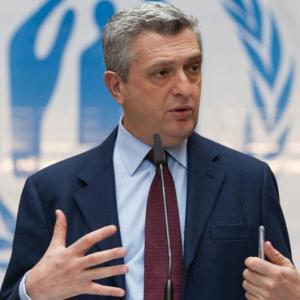As conflicts emerge, recur, persist and deepen, millions of people are uprooted around the world. Nine out of ten are in their own countries or countries next door, and the impact is massive – on refugees themselves, and on the communities that open their doors to them. Now, more than ever, taking care of refugees must be a global – and shared – responsibility. It’s time to do things differently.
A new model is now being tested, with positive results - based on equity, on justice and on humanitarian values and standards. Countries and communities need more systematic, long-term support as they take on the job of helping uprooted families. Refugees themselves need to be included in new communities, and given the chance to realise their potential. And solutions are needed - to help refugees return home when the time is right, or build new lives elsewhere. The Global Compact on Refugees – to be adopted this year - aims to make these happen.
Getting laws and policies right is vital. But it’s local people and communities that are on the frontlines when refugees arrive, and whose welcome makes the difference – the difference between rejection and inclusion; between despair and hope; between being left behind and building a future. Sharing responsibility for refugees starts there.
We see this every day – in Beirut, Lebanon; Cox’s Bazar, Bangladesh; Yumbe, Uganda; Frankfurt, Germany; Lima, Peru and countless villages, towns and cities around the world. It’s the men, women and children there, the local organisations and faith groups, the teachers, local business people and municipal leaders who make the difference – with humanity, compassion and solidarity.
Often, these communities are themselves on the margins – in remote border areas, or with few resources of their own. Yet, overwhelmingly, when refugees arrive, they share what they have motivated by compassion, and a sense of human dignity. And when people work together, the results are powerful.
Who are these everyday heroes? People who know what it means to belong to a community – and are ready to help others belong too. By extending a helping hand directly, or working together - as part of a local church or mosque, a school group, sports team, cooperative society, or youth group. Some have been refugees themselves, and know what that means. Through their generosity, they shine a light on the potential of refugees – and the endless opportunities to help them.
Helping refugees rebuild their lives needs all of us – working together so that they can achieve what most of us take for granted - education, a place to live, a job, being part of a community. Over time, the impact is enormous – for refugee families and those who welcome them.
On World Refugee Day, it’s time to recognise their humanity in action – and challenge ourselves, and others, to join them – in receiving and supporting refugees in our schools, neighbourhoods, and workplaces. This is where solidarity starts – with all of us.



